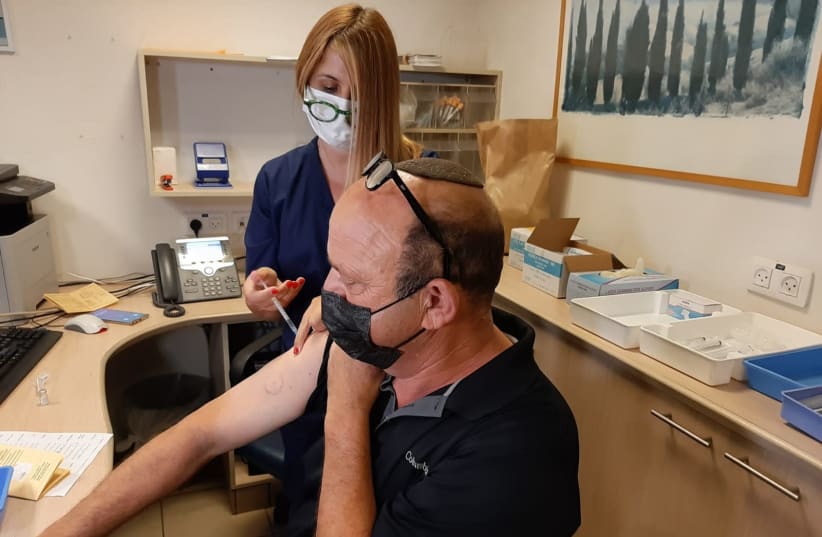The Health Ministry and Sheba Medical Center are kicking off a study on Monday to evaluate who should receive a third shot of the Pfizer coronavirus vaccine.
According to Sheba’s Prof. Gili Regev-Yochay, this will be a combination serology-PCR study of individuals and their adult family members who were fully vaccinated but contracted coronavirus.
“Within 24 hours of a vaccinated person being detected, we will contact them and their family members, and if they agree to participate in the study, then we can send a team to their house to take blood work from them and their family contacts that are over 18 and who are vaccinated. We will screen them with the blood test and a PCR test to see if any of them have been infected,” Regev-Yochay explained.
The goal is to recruit some 1,000 families and then have the data to understand the correlation of the antibody response and the cellular response to breakthrough infections, the professor explained.
“This will give us some answers as to when and to whom we should give a third vaccine dose,” Regev-Yochay added.
The Health Ministry started giving third doses to a specific list of immunocompromised patients earlier this month. A Health Ministry study that was published last week showed that in people who were vaccinated more than six months ago, the vaccine’s efficacy against the Delta variant was 16%. Since most of those people were over the age of 60 and therefore that makes it unclear whether ir was the factor of their age or the time when they received the vaccine that was the determining parameter that contributed to the reduction in vaccine efficiency.
Also on Sunday, the Leumit Health Fund published a study that people vaccinated more than five months ago were twice as likely to catch coronavirus than people who were inoculated after them.
“There is no recommendation to give older individuals a booster shot,” Health Ministry Director-General Nachman Ash said in a briefing Sunday. “But I can say that older citizens will be prioritized when we do decide to administer one in order to prevent serious infection among this part of the population.”
Ash said that he expects Israel is likely to make a decision about administering a third shot even before the US Food & Drug Administration.
The question also remains on the table as to whether a third shot should be given right away or if it would be more beneficial to wait until Pfizer and Moderna complete their upgraded vaccines that are meant to be more effective against Delta and other potential future variants
Twenty families have already agreed and will begin testing Tuesday morning. At the 10-day and 20-day mark and up through 30 days, the Sheba-Health Ministry team will follow up with the families to see if anyone was eventually infected.
Regev-Yochay said the researchers hope to complete the study within a month, depending on collaboration by the public.
